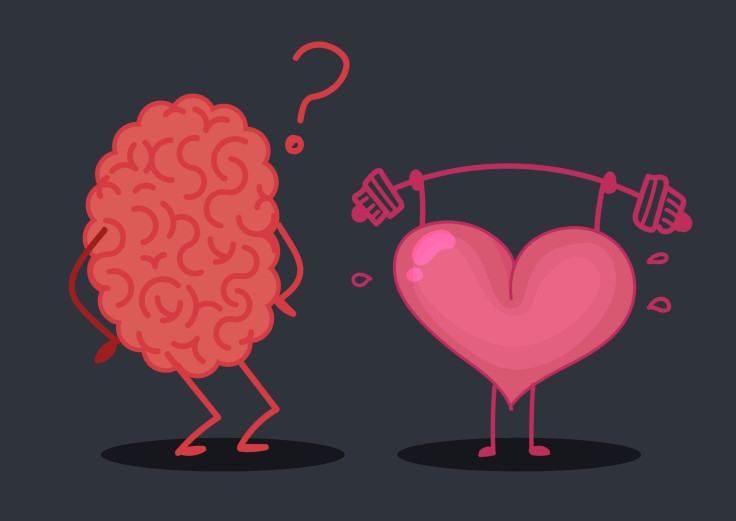Trying To Lose Weight? Focus On Managing How You Feel When Temptation Arises

Turns out, the key is to diet with your heart instead of your mind. One hundred eight million Americans are dieting at any given time in one year, yet more than 60 percent of the country is either overweight or obese. Researchers from the University at Buffalo and the University of Nebraska-Lincoln wanted to figure out why there was a gap between attempting a diet and succeeding or failing. Their study, published in the Journal of Health Psychology, reveals the missing piece of the puzzle — our emotions.
"There is clearly a disconnect if we have a majority of the population that has tried to lose weight and a majority of the population that is overweight," the study’s co-author Marc Kiviniemi, a public health researcher at the University at Buffalo, said in a press release. "People are planning to diet and trying to diet, but that's not translating into a successful weight loss effort. The crux of the disconnect is the divide between thoughts and feelings."
Because planning a diet requires cognitive strength, it challenges the mind. If your emotions aren’t up for the challenge, then the failure rate skyrockets. For example, if you decide you want to lose 10 pounds and follow a strict diet, which promises the results you want, it’s much more difficult to adhere to the set course if you don’t believe in yourself. Researchers aren’t trying to sell you a fairytale moral; they simply mean if you believe in the planned diet and not in yourself, you’re more likely to fail.
“Planning is important, but feelings matter, and focusing on feelings and understanding their role can be a great benefit," Kiviniemi said. "If you're sitting back conceiving a plan you may think rationally about the benefits of eating healthier foods, but when you're in the moment, making a decision, engaging in a behavior, it's the feelings associated with that behavior that may lead you to make different decisions from those you planned to make."
If you’re eating more than 1,800 to 2,400 calories a day, which is the USDA recommended amount for physically-inactive 19- to 30-year-old females and males (respectively), you’re going over your limit. It’s likely you’ve gained weight from eating in excess and you can either exercise to burn off the extra or choose a deprivation diet to limit your daily caloric intake. An hour of exercise each day is always recommended, and helps people lose an average of 30 pounds and keep it off for at least five years, according to the American Society for Metabolic and Bariatric Surgery. But the brain often doesn’t harmonize successfully with deprivation, according to the findings.
"First of all, the deprivation experience is miserable. If you didn't associate negative feelings with it to start, you will after a few days," Kiviniemi said. "The other thing that's important is the distinction between things that require effort and things that are automatic. Planning is an effort that demands mental energy, but feelings happen automatically. Deprivation or anything that demands a high degree of self-control is a cognitive process. If you put yourself in a position to use that energy every time you make a food choice that energy is only going to last so long."
Source: Planning versus action: Different decision-making processes predict plans to change one’s diet versus actual dietary behavior. Kiviniemi MT and Brown-Kramer CR. Journal of Health Psychology. 2015.
Published by Medicaldaily.com



























